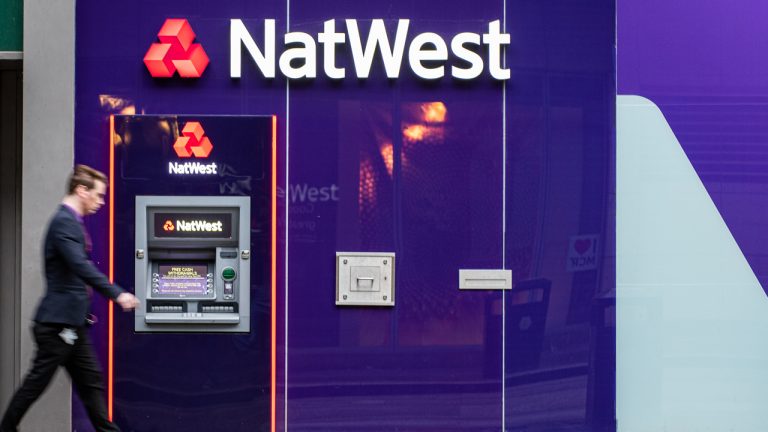
The major retail and commercial financial institution National Westminster Bank (Natwest) has categorized cryptocurrencies as “high risk” and refuses to serve business customers who accept digital assets for payments. A Natwest board member, Morten Friis, explains the bank has no appetite for dealing with these types of customers as Natwest is taking a “cautious approach” toward this technology.
Natwest Will Refuse to Do Business With Companies That Accept Cryptocurrencies
Reports show that the popular UK-based financial incumbent and wealth manager Natwest is refusing to serve business customers who accept cryptocurrencies. The same bank established in 1968 from a merger between Westminster Bank and National Provincial that suffered from intense scrutiny after being involved in the stock market crash of 1987.
The report written by theguardian.com’s banking correspondent Kalyeena Makortoff explains that Morten Friis, a Natwest board member and head of the bank’s risk committee is taking an adverse approach toward crypto-assets. Friis notes that the bank has no cravings for dealing with crypto customers and digital assets are “high risk” from Natwest’s perspective.
“We have no appetite for dealing with customers, whether taking them on as new clients or having an ongoing relationship with people, whose main business is backed by an exchange for cryptocurrencies, or otherwise transacting in cryptocurrencies as their main activity,” the bank’s risk manager stressed during a shareholders meeting on April 21.
Friis further asserted:
We think of cryptocurrencies as high risk and we’re taking, for that reason, a cautious approach to this. It’s an area where regulation is very much in evolution and we’ll obviously respond to that as things change.
A Few Banks Are Taking a Stand-off Approach Toward Crypto-Assets
Natwest’s current opinion echoes the same warning the UK’s Financial Conduct Authority (FCA) issued in March. The FCA warned that “younger investors are taking on big financial risks.” Moreover, the financial incumbent HSBC has been taking a stand-off approach toward crypto assets as well. Essentially, HSBC has chosen to bar investors from buying into stocks from firms that hold bitcoin. Reports this week also indicate that HSBC is even taking issues with Coinbase shares (COIN).
The bank Natwest has not been without controversy, even beyond the market rout on ‘Black Monday’ back in 1987. Ten years later in 1997, the corporate and investment banking arm Natwest Markets disclosed that the banking group had lost £50 million. Further research proved the loss was upwards of £90.5 million and because of these further investigations, faith in Natwest declined rapidly. However, the Bank of England (BoE) stepped in and curbed the resignation of top Natwest officials.
In 2016, Bitcoin.com News reported that Natwest was one of the first UK high street banks to introduce the charging of negative interest rates against its customers. Reports at that time noted that only business customers would feel the new policy, but the announcement shook markets and caused faith to drop as well.
Many crypto-asset supporters would say that Natwest is a shining example of why bitcoin and the myriad of digital assets exist. From the controversies in 1987, 1997, 2016, even today, the bank has witnessed a declining trust from the public. More recently, the Financial Conduct Authority (FCA) invoked criminal proceedings against Natwest for allegedly failing to comply with money laundering rules.
What do you think about Natwest explaining that the bank refuses to do business with businesses that accept crypto assets? Let us know what you think about this subject in the comments section below.
Comments
Post a Comment